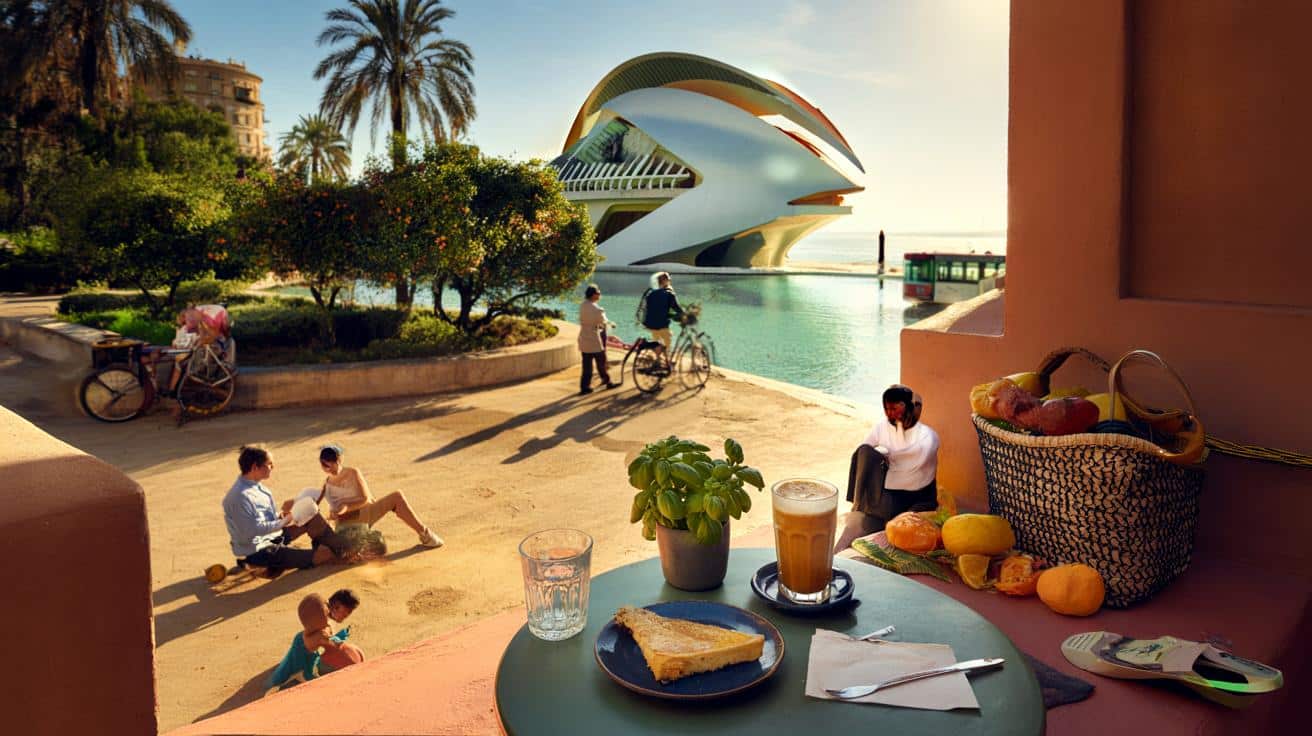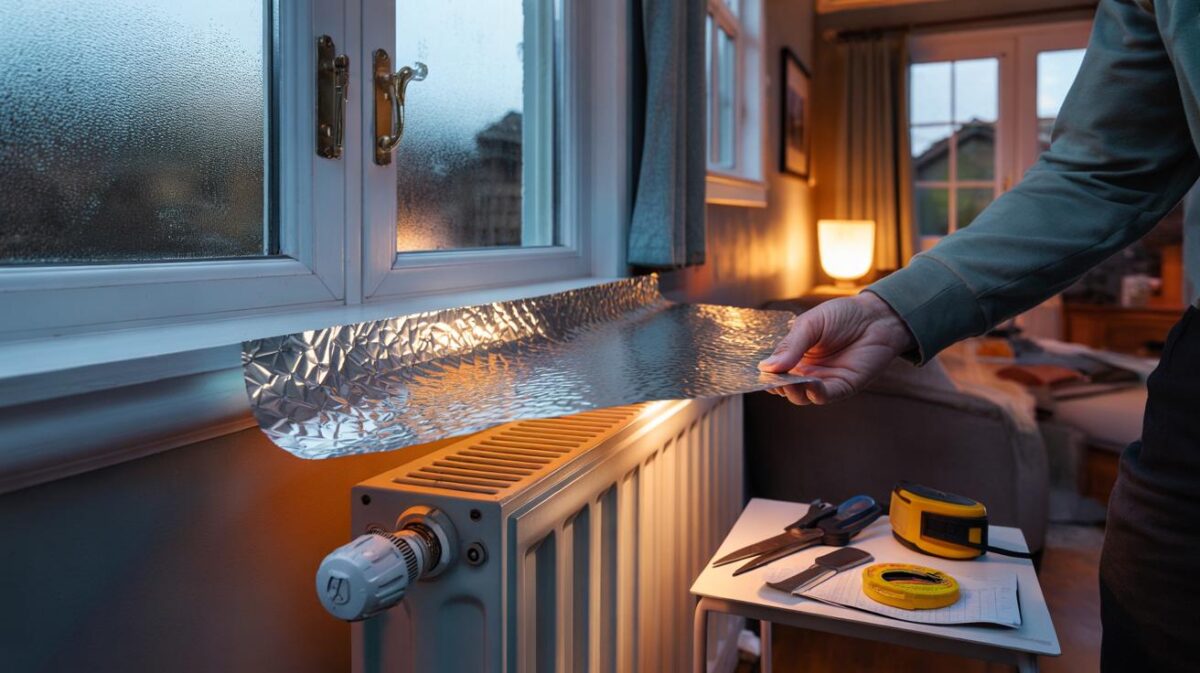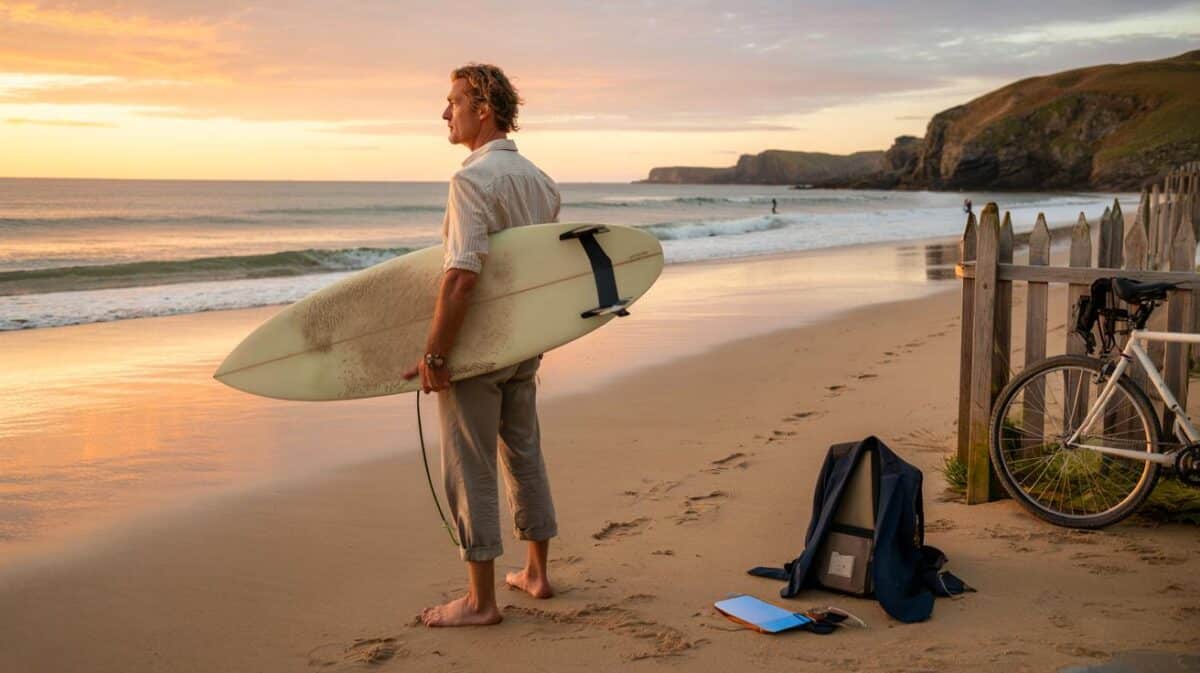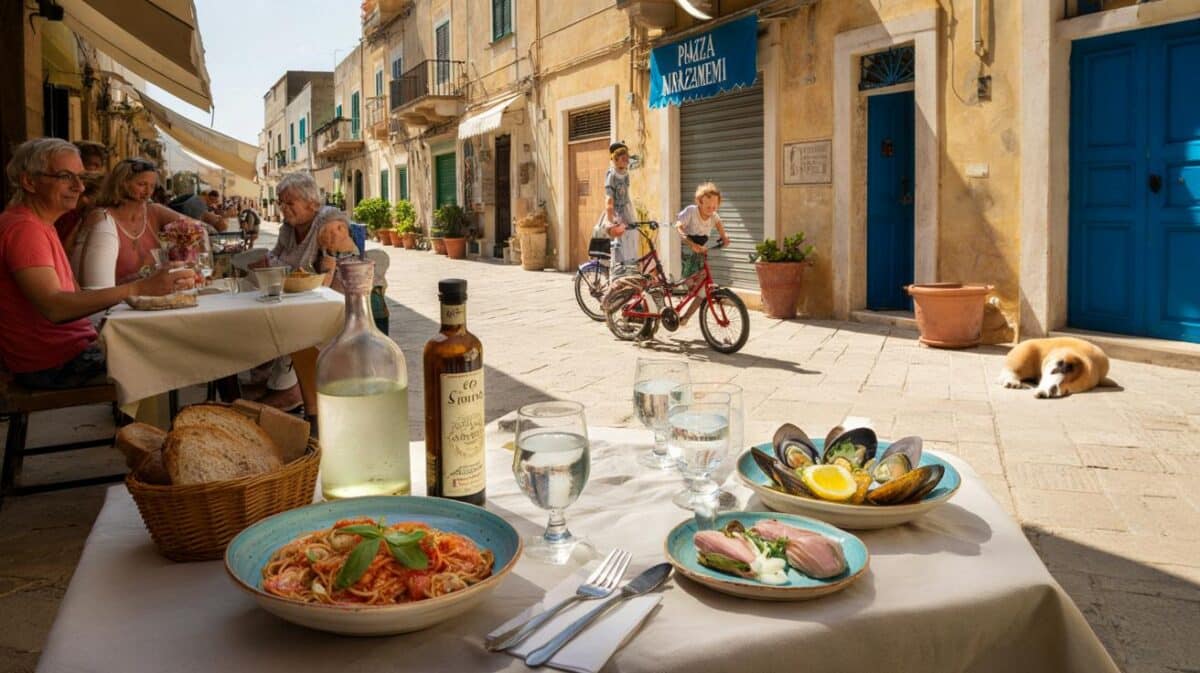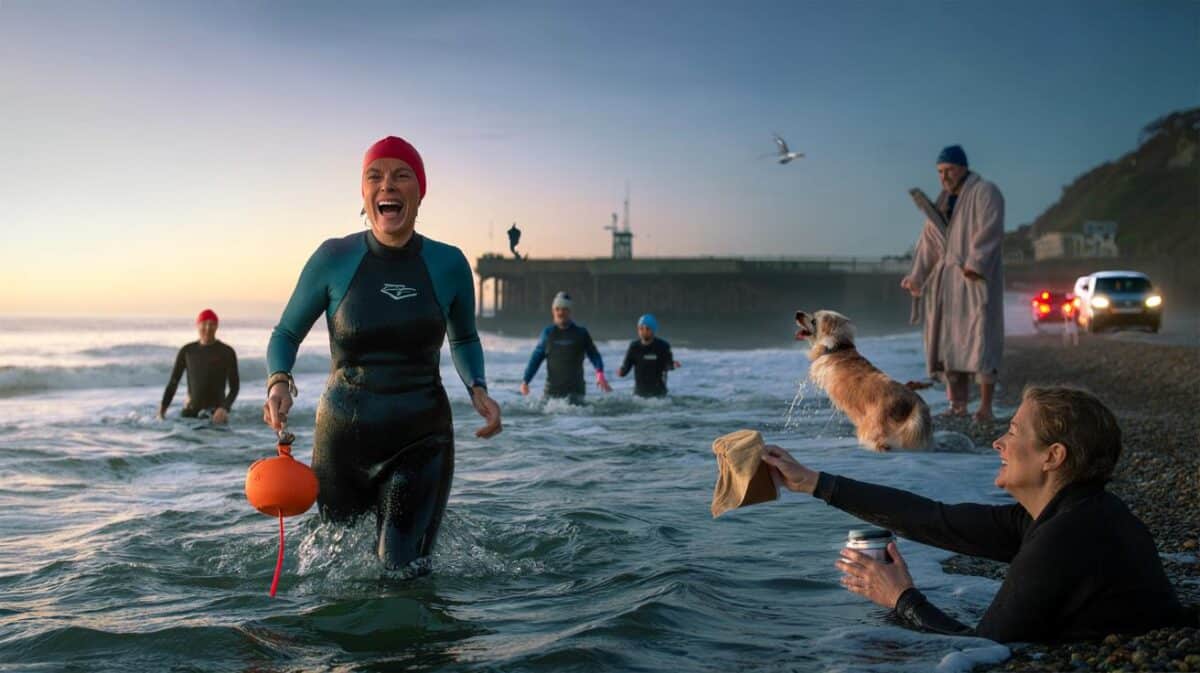You can chase a bigger salary or a bigger life. Rarely both. In one warm corner of Europe, an increasing number of Britons are choosing the second option — finding that a smaller pay packet can buy a broader day.
Cyclists glide along the Turia’s old riverbed, now a ribbon of gardens that splits the city like an emerald seam. A barista slides me a cortado and a glass of water, €1.60 for both, and smiles like we’ve met before. The air carries the briny sting of the sea and the hiss of frying churros from a nearby kiosk. I watch a retired couple shuffle a deck of cards, then a kid in a Messi shirt chase a football under orange trees.
I moved my laptop onto the terrace because the light was too nice to ignore. Rent is lower, afternoons are longer, dinner lands at ten. *I walked home with sand still on my ankles.* And then the penny dropped.
Maybe it’s not about earning more at all.
Valencia: where time slows and life expands
In Valencia, the day stretches. People linger over coffee without apologising, and the city invites you to be outside more than in. The beach is fifteen minutes from the centre on the tram, which means a swim at lunch isn’t a fantasy, it’s Tuesday.
Food is a ritual without fuss. Slices of tortilla perch on bar tops next to glasses of vermut; lunch menus offer three courses for a price that would barely cover a sandwich in Zone 1. Ruzafa has cafés that double as studios; Benimaclet fills with guitar chords at dusk. You feel it in your shoulders first, then in your calendar.
Take Hannah, 32, who swapped a tech job in London for a remote role that paid 30% less. She moved into a sunlit flat near the Mercado Central with a balcony full of basil and a view of tiled roofs. Her rent dropped from £1,650 to around €950 a month. She joined a ceramics class, cycled the old riverbed to work, and learned to order horchata without raising an eyebrow. On Sundays, she calls home from the beach at Malvarrosa with gulls heckling the waves.
Local salaries tend to be lower than the UK, and you notice it on job boards. The trade is time and texture. A monthly travel pass costs roughly what a single night out in Soho might, and paella isn’t a special occasion thing — it’s a shared pan on a lazy afternoon. Many surveys consistently place Valencia at or near the top for quality of life in Europe, and you understand why the moment you hit the bike lane.
The maths isn’t just about rent. It’s about how the city compresses distances and expands options. You can walk most places, which quietly erases a costly Uber habit. Tapas don’t demand a tip-toed bank account. Heat brings people out late, so social life flows in the squares instead of expensive bars. The city’s rhythm can’t be monetised, which is the point. Time becomes the currency you actually spend.
How to test the ‘earn less, live better’ life
Run a 90-day experiment before making it permanent. Pick two neighbourhoods with different moods — say, Ruzafa for buzz and El Cabanyal for sea-salt calm — and split your time. Rent a mid-term flat with a proper desk and fan, and map your week like you already live here: shop at markets, take the tram, budget with a local grocery app. Track how often you eat out, how far you walk, how much you actually miss your old commute.
Build a simple budget in three buckets: rent, food, everything else. In Valencia, a realistic solo monthly budget might look like €900–€1,200 for rent, €250–€350 for groceries and markets, €200–€350 for eating out and small treats, and €45–€60 for transit. Set a rule for meals: lunch out on weekdays, dinner in, weekends flexible. Let the city’s cheap joys carry your entertainment — free galleries, park workouts, sunset swims — instead of subscription-stuffed evenings. Let your spreadsheet breathe.
Watch for traps that fritter your savings. Newcomers overpay for short-term rentals near the beach in August, then wonder where the money went. Paperwork takes patience, so build a buffer for translator help or an gestor who knows NIE/TIE routines. Don’t expect life to slot into English — the first time you order in Valencian, it will be wobbly and charming. And the siesta isn’t a myth; banks close early, deliveries arrive when they arrive. Let’s be honest: nobody does that every day, but the pace is part of the bargain.
“I took a pay cut and gained my weekends back,” says Oliver, 41, who swapped agency life in Shoreditch for freelance gigs in Valencia. “I finish at four, grab my board, and I’m in the water by half past. My laptop doesn’t glare at me from the sofa anymore.”
- Sample everyday costs: espresso €1–€1.80; menu del día €12–€15; tram ticket €1.50–€2; monthly gym €25–€40.
- Neighbourhood vibes: Ruzafa (creative and café-rich), Benimaclet (student-y, local), El Cabanyal (sea breeze and colourful tiles), Extramurs (calmer, near Turia Park).
- Low-lift joys: sunrise at the City of Arts and Sciences, oranges straight from a market stall, free open-air concerts in summer.
What lower pay buys when climate and community do the heavy lifting
You notice it in small swaps. The £19 London salad becomes a Valencian market bag bursting with tomatoes so sweet they taste engineered. After work, you cycle under palm fronds to meet friends with no table booking and no clock-watching. We’ve all had that moment when you realise you’ve stopped refreshing work email on your phone because the light outside is busy showing off. That’s the trade: less cash in, more life out.
The city is set up for accidental community. Paella is cooked for sharing, benches face each other in the plazas, and neighbours open their doors during Fallas to compare papier-mâché ninots with total strangers. You end up knowing the greengrocer’s name and the busker’s favourite Leonard Cohen cover. When your friendships exist in the same streets, they cost less to maintain and feel more like oxygen.
Not every day is postcard-pretty. Summer can slap, bureaucracy can dawdle, and some months you’ll wish you earned your London rate. Yet the net gain can be stubbornly clear. Your calendar holds fewer obligations you dread, your feet cover more ground, your meals slow down, and your sleep deepens. That thrumming anxiety that used to fill the gaps gets nudged out by a warm wind and a walk. That’s a good exchange rate.
What makes this shift stick is that it doesn’t depend on a beach selfie. It thrives on unglamorous routines — supermarket trips, batch-cooked lentejas, early tram rides, sunset sit-downs on a random stone step. **I earn less but live better** isn’t a hashtag here. It’s a diary entry that keeps writing itself.
| Point clé | Détail | Intérêt pour le lecteur |
|---|---|---|
| Valencia stretches time | Compact city, bike-first, beach access, park spine | Daily routine lightens without lifestyle FOMO |
| Costs align with joy | Affordable food, transit, and free outdoor culture | Smaller budget, richer days |
| Test before you leap | 90-day split-neighbourhood trial and simple budget | Low-risk way to see if the trade suits you |
FAQ :
- Is Valencia really cheaper than UK cities?For many daily costs, yes. Rents, food markets, and transit typically undercut big UK hubs, while salaries tend to be lower too.
- Do I need Spanish to live well?You can muddle through with English in expat pockets, but basic Spanish unlocks friendships, paperwork, and lower-stress days.
- How hot does it get — and what’s winter like?Summer runs hot and bright with sea breezes; winter is cool and short, with coats at night and sunny lunch breaks.
- What about healthcare and visas for Brits?Spain’s public system is strong; you’ll need the right residency route or private cover. Post-Brexit rules apply, so plan paperwork early.
- Can families pull this off?Plenty do. Parks, beaches, and public schools make it workable; the key is neighbourhood choice and a realistic transition for kids.
Here’s the quiet punchline. When the city gives you light, space, and company, your bank balance stops doing all the heavy lifting. You won’t out-earn London in Valencia, and you probably won’t want to. The surprise is how little you miss the difference. A smaller income buys a larger circle of daily joys — a wet swimsuit on the balcony rail, a lunch that lingers, a walk taken because the street asked nicely.
Some people need the thrum of Big City Big Pay. Others want the trade winds of a place that measures wealth in afternoons. **Valencia** won’t suit everyone; rhythms matter, and seasons shift. But if your gut hums at the idea of a life uncramped, this warm corner of Europe is a living experiment you can run. **Earn less, live better** isn’t a slogan here — it’s a street-level truth you can test with a tram card and a notebook.
So take a look at your calendar, not just your payslip. Let the numbers sit beside the sun, the market, the park, the swim. Maybe the map of your good life is southern and sea-salted. Maybe the maths finally adds up.

